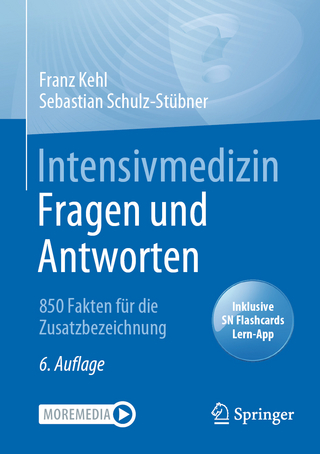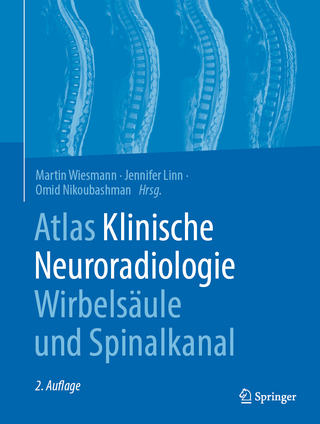
Functional Rehabilitation in Neurosurgery and Neurotraumatology
Springer Wien (Verlag)
978-3-7091-7283-4 (ISBN)
I: Neurosurgical Rehabilitation, Current Concepts, Strategies, and Outcome.- Neuro-Rehabilitation - a Challenge for Neurosurgeons in the 21st Century. Concepts and Visions of the WFNS Committee on Neurosurgical Rehabilitation.- Standards of Neurologic-Neurosurgical Early Rehabilitation.- Early Rehabilitative Concepts in Therapy of the Comatose Brain Injured Patients.- Incidence and Management of Complications During Posttraumatic Early Rehabilitation.- Early Functional Outcome in Isolated (TBI) and Combined Traumatic (CTBI) Brain Injury.- Neurological and Social Long-Term Outcome after Early Rehabilitation Following Traumatic Brain Injury, 5 Year-Report on 240 TBI Patients.- Requirements ofTeam Effectiveness in Neurosurgical Rehabilitation.- Merging Pathways: Music Therapy in Neurosurgical Rehabilitation.- The Impact of Treatment on Survival Roles of a Person with a Traumatic Brain Injury.- A Computerized Version of EBIS Evaluation Chart and its Opportunities in the Rehabilitation Program of TBI Patients.- Satisfaction of Life and Late Psycho-Social Outcome after Severe Brain Injury: A Nine-Year Follow up Study in Aquitaine.- Clin ical Efficacy of Stimulation Programs Aimed at Reversing Coma or Vegetative State Following Traumatic Brain Injury.- What is a Good Re-Entry Programme? What are the Key Questions? -J. Douglas Miller Memorial Lecture 59.- Health Management Technology for Complex Medical Conditions.- II: Functional Neurosurgery and Neuromodulation.- The Important Role of Pain in Neurorehabilitation. The Neurosurgeon's Approach.- Combined Intrathecal Baclofen and Morphine Infusion for the Treatment of Spasticity Related Pain and Central Deafferentiation Pain.- The Punctuate Midline Myelotomy Concept for Visceral Cancer Pain Control Case Report and Review of theLiterature.- Deep Brain Stimulation Therapy for a Persi stent Vegetative State.- Deep Brain Stimulation of the Globus Pallidus Internus (GPI) for Torsion Dystonia A Report of two Cases.- Control of Post-Stroke Movement Disorders Using Chornic Motor Cortex Stimulation.- Vagus Nerve Stimulation for Epilepsy, Clini cal Efficacy or Programmed and Magnet Stimulation.- Computer Added Locomotion by Implanted Electrical Stimulation in Paraplegic Patients (SUAW).- Application of a Dual Channel Peroneal Nerve Stimul ation in a Patient with a "Central" Drop Foot.- Rehabil itation of Hearing and Communication Function in Neurofibromatosis Type 2.- Electrical Stimulation of the Sural Nerve Partially Compensate s Effects of Central Fatigue.- Management of Upper and Lower Limb Spacticity in Neuro-Rehabilitation.- Botulinum Toxin (DYSPORT) in Tension Type Headaches.- III: Extended Abstracts.- Does Intensive Rehabilitation Improve the Functional Outcome of Patients with Traumatic Brain Injury (TBI)? Cognitive Function Result of a Randomised Controlled Trial..- Post Traumatic Vegetative States: Cost of Care.- Psychotherapeutic Aspects on Early Neurorehabilitation in ICU.- Neuropsychological View on Early Neurorehabilitation - View from Denmark.- Neurorehabi1itation the Danish Concept.- Early Neurorehabi1itation - Neurosurgical View.- The TORNEO Project for Professional Reintegration of People with Acquired Brain Injury.- B.N.I., a New Tool for Rapid Evaluation of Higher Cerebral Functions of Traumatic Brain Injured Patients.- Z. S.de Boisgeheneuc.- Thoughts on Early Neuro Rehabilitation (ENR) in Germany and Own Experience.- Combating Brain Attack: Therapeutic Strategies for Patients with Subarachnoid or Intracerebral Haemorrhage of Grave Prognosis.- Neuropsychological Evaluation ofthe Patients with Unruptured Cerebral Aneurysms Combined with Asymptomatic Cerebral Infarction before and after Surgery.- Neurological Outcome after Decompressive Craniectomy (DC) in 39 Patients Suffering from Middle Cerebral Artery (MCA) Infarction.- Sequelae of Damage to Extra-Intracranial Arteries Following Head Injury.- Dorsal Column Stimulation for Arousal of Coma.- Patients with Prolonged Consciousness Disturbances and Brain Electrical Stimulation Therapy.- Vigilance Enhancing Effect of Botulinum Toxin A (BtxA) after Local Application in Vegetative Patients with Severe Spacticity Following Traumatic Brain Injury (TBI).- Post Traumatic Epilepsy and Two-Year MRI Follow-up of Head Trauma: A Prospective Study.- Characteristics of Emotional Personality Disturbances in Adolescents with Chronic Post-Traumatic Headaches (CPTH) after Mild Traumatic Brain Injury (MTBI).- Longterm Neuropsychological Outcome after Childhood Traumatic Brain Injury (TBI): Effects of Age at Injury.- Suicide Following Traumatic Brain Injury: A Population Study.- Attentional Complaints of Professionals are More Accurate than Patients' and Relatives' Complaints Following Severe Traumatic Brain Injury.- Divided Attention after Severe Diffuse Traumatic Brain Injury.- An Ecological Approach of a Dysexecutive Syndrome.- Quality of Life 2 to 6 Years after Severe Traumatic Brain Injury (TBI).- Author Index.- Index of Keywords.
| Erscheint lt. Verlag | 5.11.2012 |
|---|---|
| Reihe/Serie | Acta Neurochirurgica Supplement |
| Mitarbeit |
Stellvertretende Herausgeber: M. Lipovsek, A.D. Mendelow, J.-L. Truelle |
| Zusatzinfo | X, 150 p. |
| Verlagsort | Vienna |
| Sprache | englisch |
| Maße | 210 x 279 mm |
| Gewicht | 419 g |
| Themenwelt | Medizinische Fachgebiete ► Chirurgie ► Neurochirurgie |
| Medizin / Pharmazie ► Medizinische Fachgebiete ► Neurologie | |
| Medizin / Pharmazie ► Pflege | |
| Medizin / Pharmazie ► Physiotherapie / Ergotherapie ► Rehabilitation | |
| Schlagworte | neorology • nervous system • Neurorehabilitation • neurosurgery • Rehabilitation • rehabilitation psychology |
| ISBN-10 | 3-7091-7283-7 / 3709172837 |
| ISBN-13 | 978-3-7091-7283-4 / 9783709172834 |
| Zustand | Neuware |
| Haben Sie eine Frage zum Produkt? |
aus dem Bereich


